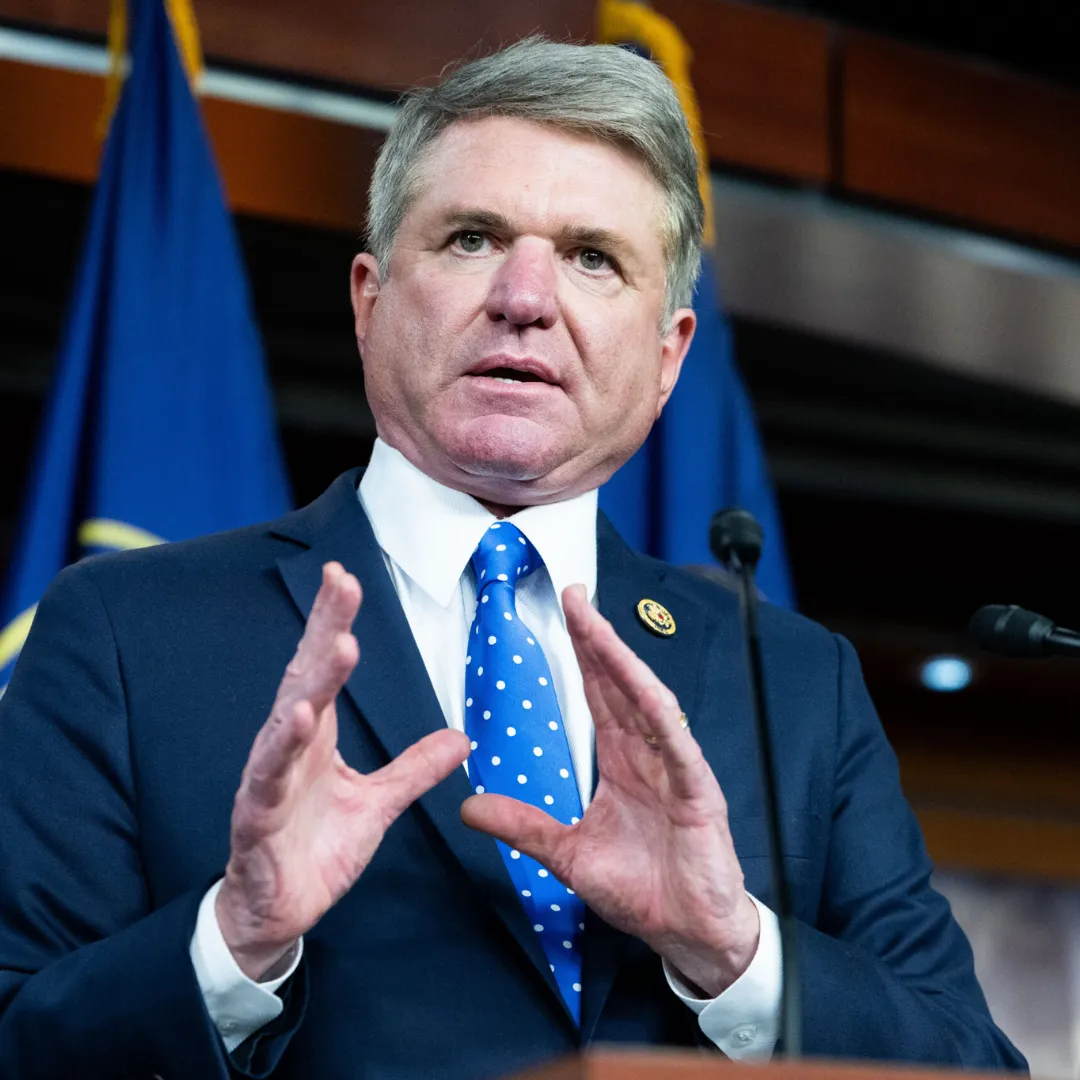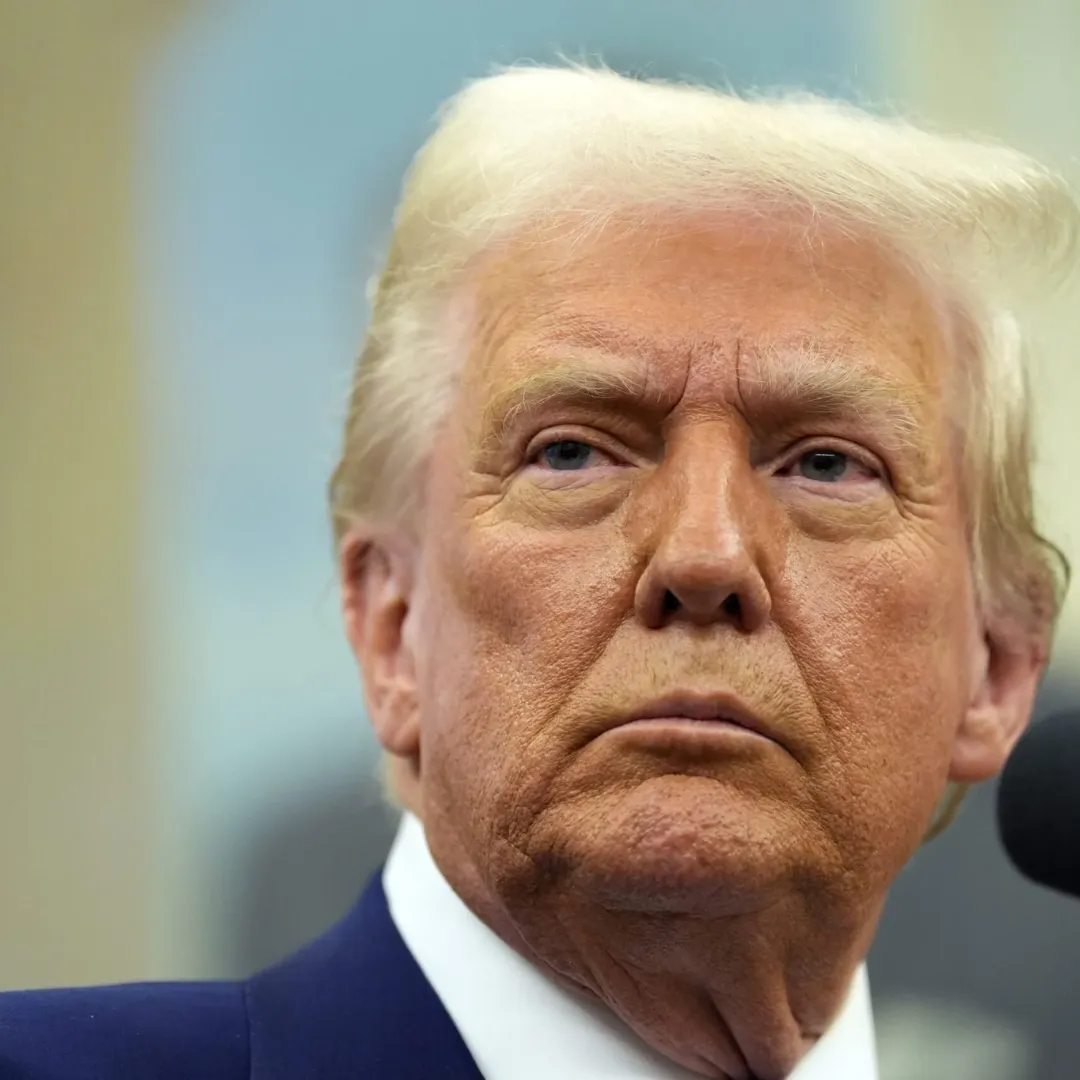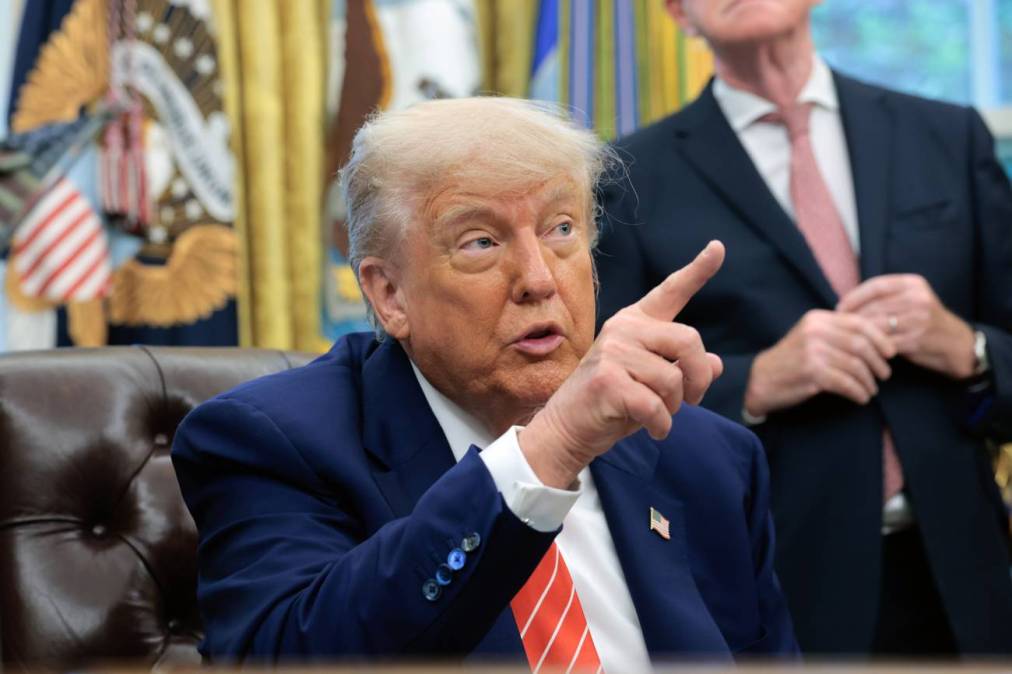
President Donald Trump fiercely criticized former President Biden’s high-speed internet program on Thursday, vowing to immediately terminate what he referred to as a “racist” and “illegal” initiative designed to provide internet access and technology skills to underserved communities across the United States.
This attack was aimed squarely at the Biden administration’s Digital Equity Act, which allocated approximately $2.75 billion to expand digital access and skills training for Americans.
Trump’s comments were made after a discussion with Commerce Secretary Howard Lutnick, where they agreed on the unconstitutionality of the Biden-era program.
Trump, in his Truth Social post, went on to express his disdain for the initiative, which he claims is a “woke” and racially motivated giveaway. According to the former president, the Digital Equity Program constitutes a $2.5 billion dollar handout that unfairly benefits certain racial groups at the expense of American taxpayers.
“We [Trump and Lutnick] agree that the Biden/Harris so-called ‘Digital Equity Act’ is totally UNCONSTITUTIONAL,” Trump declared in his post.
“No more woke handouts based on race! The Digital Equity Program is a RACIST and ILLEGAL $2.5 BILLION DOLLAR giveaway. I am ending this IMMEDIATELY, and saving Taxpayers BILLIONS OF DOLLARS!” Trump’s bold words sparked immediate debate, as his stance on the program reflects a broader resistance to policies aimed at promoting diversity and equity.
The Digital Equity Act was signed into law by President Biden in 2021 as part of his landmark $1 trillion infrastructure package. The initiative, which is part of Biden’s broader “internet for all” agenda, set aside approximately $60 million for grants to states and territories to develop plans to improve technology access, while another $2.5 billion was allocated to fund the implementation of those plans.
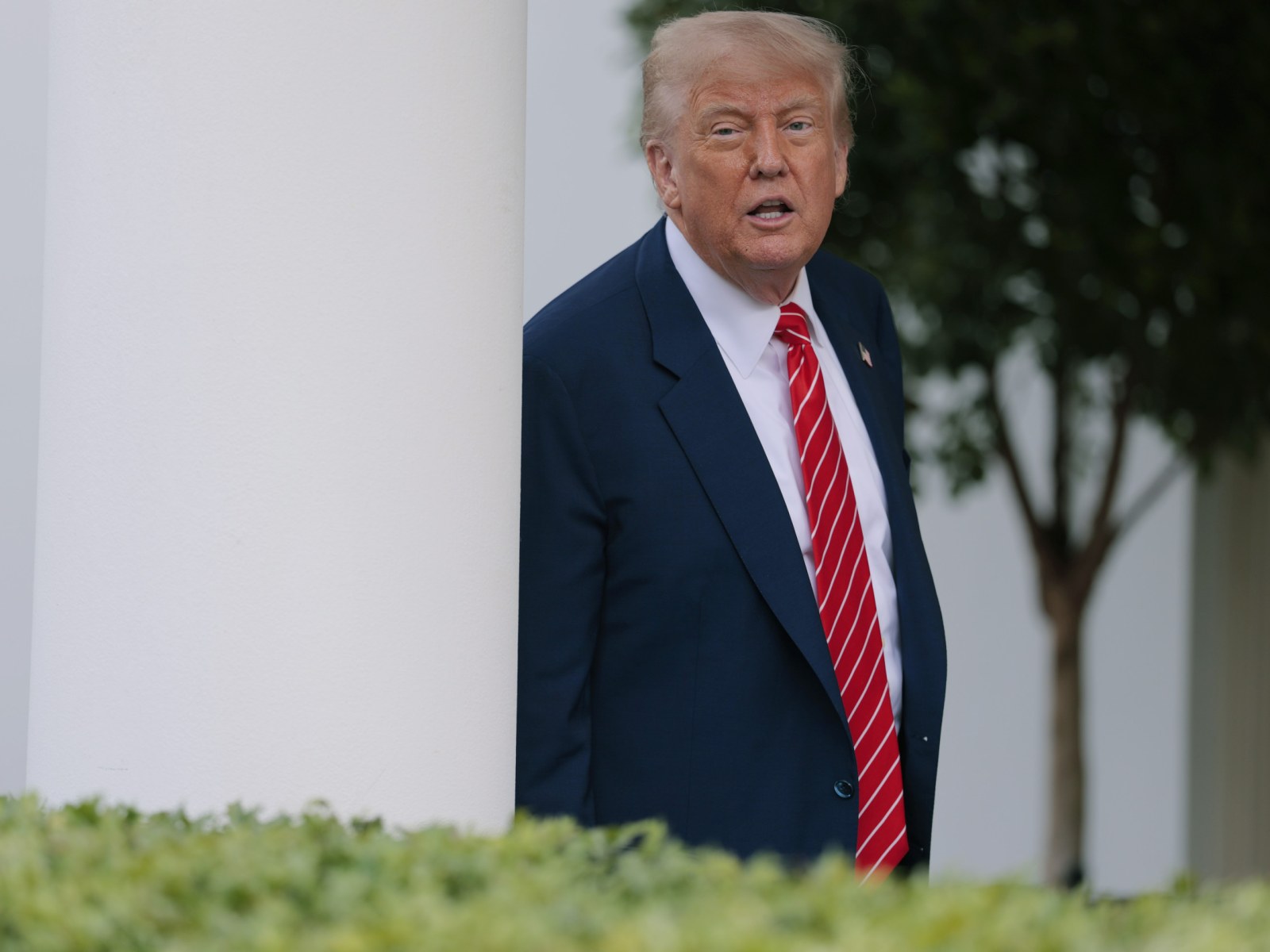
The goal of the program is to reduce the digital divide in the U.S. by ensuring that every American, regardless of their socio-economic status, has access to the internet and the skills necessary to succeed in a digitally driven world.
Under the Trump administration, there has been a concerted effort to roll back several diversity, equity, and inclusion (DEI) programs. The former president has frequently criticized policies aimed at addressing systemic inequality, particularly when those policies involve financial redistribution based on race or identity.
Trump’s statements about the Digital Equity Act fit within his broader political agenda, which has consistently emphasized opposing what he describes as “woke” policies that promote racial equity and preferential treatment.
The former president’s denunciation of the Digital Equity Act as "racist" comes at a time when debates about racial equity, government intervention, and access to technology are heating up in American politics.
While Trump’s critique focuses on the allocation of funds based on racial lines, proponents of the Digital Equity Act argue that it is a necessary step to address long-standing disparities in access to technology and education.
Senator Patty Murray (D-Wash.), the original author of the Digital Equity Act, immediately fired back at Trump’s criticisms. In a statement, Murray called out Trump for his lack of understanding and for making what she described as baseless claims about the program.
“As usual, the President has no idea what he’s talking about,” Murray said in her response to Trump’s Truth Social post. The senator stressed that the Digital Equity Act was designed with one goal in mind: to close the digital divide in America by providing underserved communities with the tools and access they need to succeed in an increasingly digital world.

“I wrote the Digital Equity Act to help close the digital divide in America—it’s about making sure seniors can get online and equipping every student in every classroom with the tools they need to succeed, whether that’s a hotspot to take home or a laptop,” Murray explained.
According to the senator, the Digital Equity Act is about ensuring that everyone, regardless of their background or location, has the same opportunities when it comes to accessing technology and the internet.
She emphasized that the law is not about giving special treatment to any particular racial group but is about providing all Americans with the opportunity to thrive in the digital age.
Murray also pointed out that the law was carefully designed to provide maximum flexibility to states, cities, and tribal communities so they could decide how to invest the Digital Equity funds in the way that best meets their local needs.
“My law provides maximal flexibility to cities, states, and Tribes so every local community can decide for themselves how they invest Digital Equity dollars—that’s why it passed with overwhelming bipartisan support,” Murray continued.
She argued that the widespread bipartisan backing for the law proves that it was not a partisan issue but one that addressed a fundamental need in American society.
Trump’s decision to challenge the Digital Equity Act, despite its bipartisan support, reflects the deepening ideological divide in American politics. The former president’s comments on the program have reignited the broader debate about government spending, racial equity, and the role of technology in addressing social inequality.
By labeling the program as a “racist” and “illegal” giveaway, Trump is tapping into the growing resentment among some voters who feel that government policies are giving preferential treatment to certain groups at the expense of others.
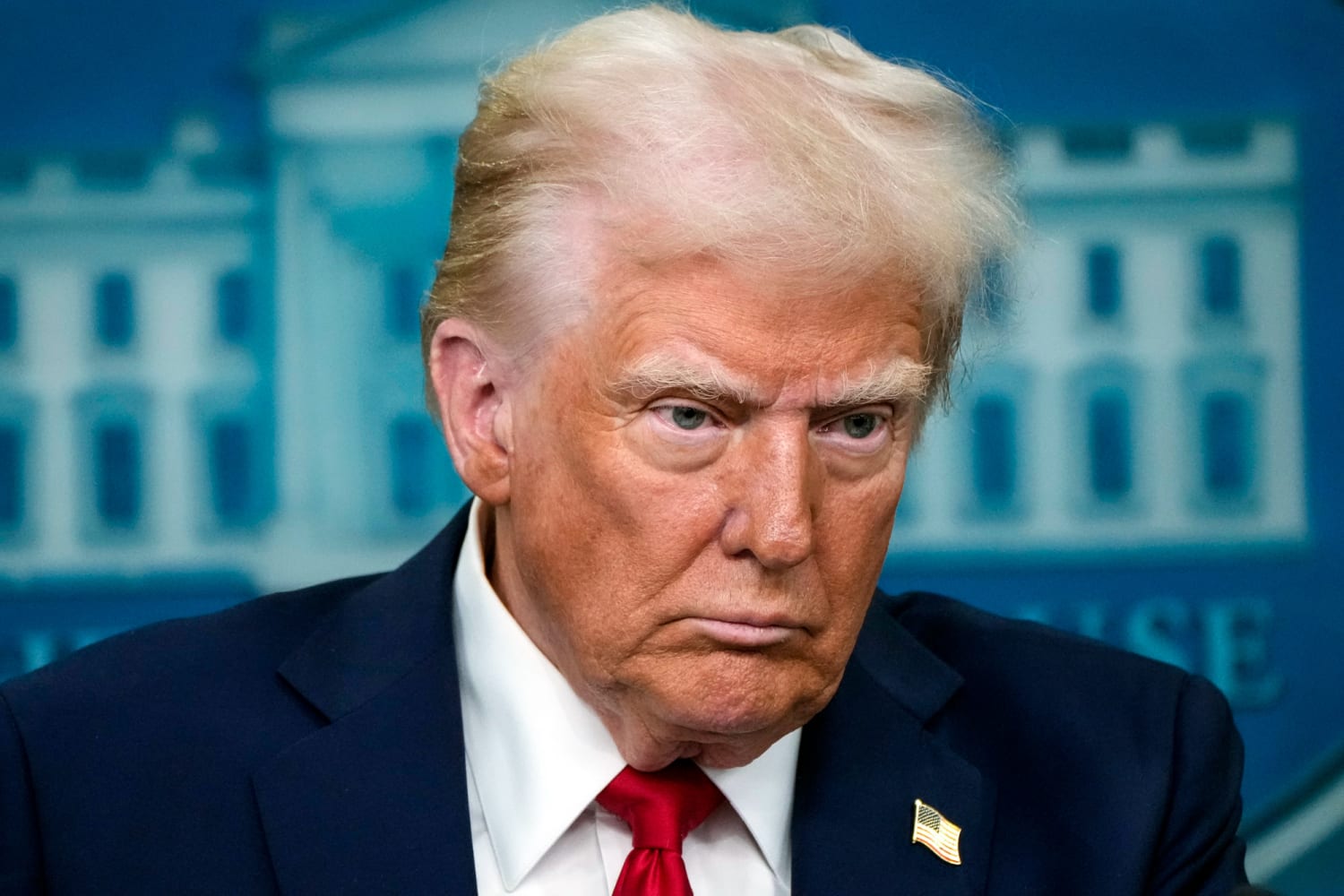
The legal implications of Trump’s stance on the Digital Equity Act are significant. The grants allocated through the Act were appropriated by Congress, meaning that if Trump were to follow through on his promise to block the funding, he would likely face legal challenges from those who support the initiative.
Murray made it clear that she would not allow Trump to disregard the law and the funding appropriated by Congress. “It is absolutely insane that resources meant to help red and blue communities—everyone from local school districts and libraries to workforce training programs and Tribes—close the digital divide will be illegally blocked because the President doesn’t like the word equity,” she said.
The potential cancellation of the grants has sparked concerns among groups that would benefit from the Digital Equity Act. Local school districts, libraries, and workforce training programs across the country have been counting on these funds to improve access to technology and ensure that all Americans, regardless of their race or background, have the opportunity to succeed in the digital world.
Trump’s comments have raised alarms about the future of these initiatives, with many questioning whether the president’s opposition to the program will lead to a significant setback in efforts to close the digital divide.
The controversy surrounding the Digital Equity Act is a reflection of the broader political battles over government intervention and the role of the state in addressing inequality.
As Trump continues to push back against policies that promote racial and economic equity, the divide between those who support such initiatives and those who oppose them is growing wider.
The debate over the Digital Equity Act is likely to intensify as Trump and other conservative leaders continue to challenge government programs that aim to address systemic inequalities and provide support to historically marginalized communities.

In conclusion, the fight over the Digital Equity Act represents a microcosm of the broader ideological struggle over government spending, racial equity, and the role of technology in society.
Trump’s critique of the program as a “racist” and “illegal” giveaway has sparked widespread backlash from those who believe that it is a necessary step in addressing the digital divide in America.
As the legal and political battles continue to unfold, it remains to be seen whether Trump will be able to block the funding and whether the Digital Equity Act will be implemented as planned.
For now, the debate over the future of the program continues to raise important questions about the role of government in promoting fairness, opportunity, and access to technology in the 21st century.

